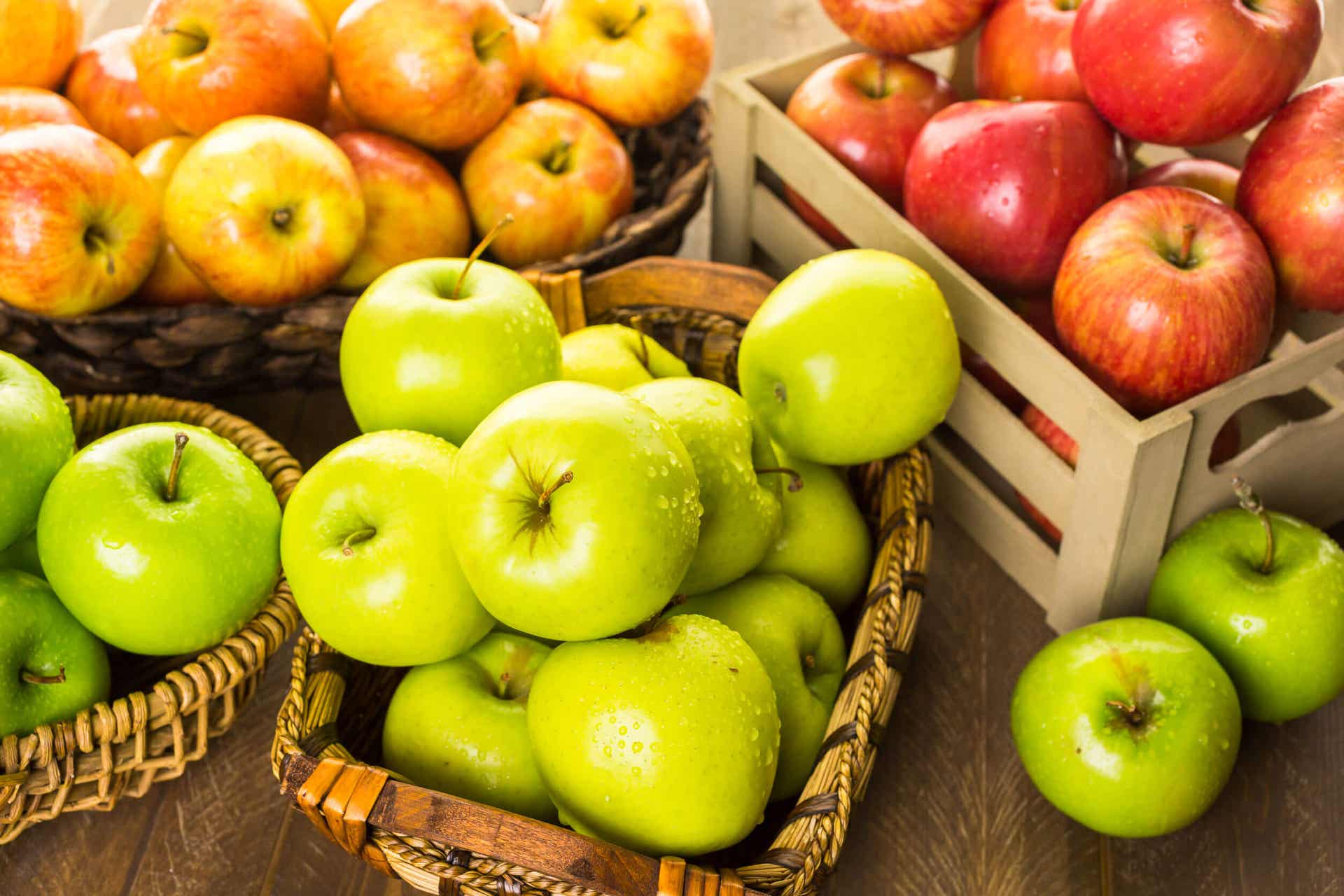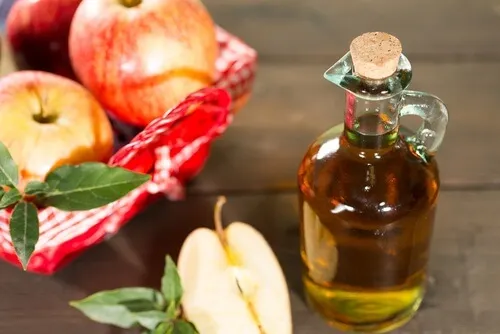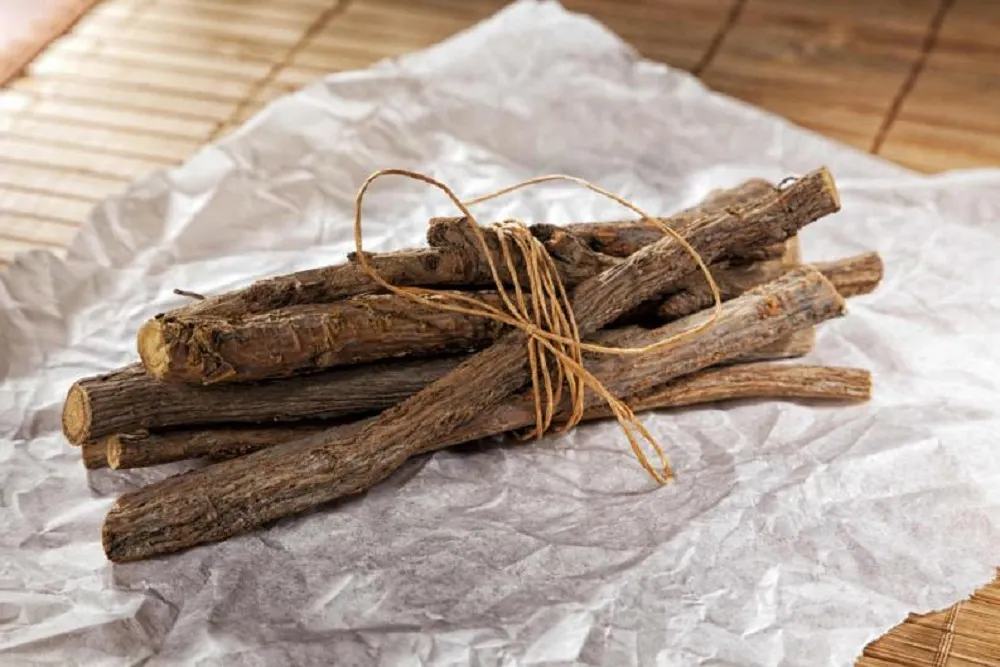Discover 7 Natural Stomach Protectors


Written and verified by the doctor Nelton Abdon Ramos Rojas
As experts point out, functional gastrointestinal disorders are one of the most frequent complaints at doctor’s visits. Some of these, such as heartburn and reflux, can be incredibly annoying and difficult to control. To help you find relief, today we’re going to show you the best natural stomach protectors.
Many turn to the classic stomach protectors and almost always do so without a doctor’s prescription. It should be noted that their regular consumption can lead to other complications. The adverse effects attributed to these after recurrent and excessive use are osteoporosis, kidney damage, dementia, micronutrient deficiency, infections, and gastric cancer.
Is there a natural alternative? It is clear that, first of all, we must know the cause of the stomach problem. For this, it’s always necessary to consult a doctor. He or she will find the exact cause, suggest changes in lifestyle habits and endorse the use of natural gastric protectors, if necessary.
Information about gastric protectors
According to the Spanish Society of Digestive Pathology (SEPD), the so-called proton pump inhibitor drugs (PPI), whose best-known trade names are omeprazole, lansoprazole, pantoprazole, rabeprazole, and esomeprazole, constitute one of the most widely consumed families of drugs worldwide.
Why is this so? In general, PPI drugs are also prescribed as gastroprotection for patients taking non-steroidal anti-inflammatory drugs (ibuprofen and acetylsalicylic acid, among the best known). These are usually cases of advanced age, chronic disease, and prolonged treatment of these anti-inflammatory drugs.
“Aspirin or nonsteroidal anti-inflammatory drugs can cause small ulcers in the stomach and duodenum. In order to make them heal faster, we prescribe these drugs, which slow down the production of hydrochloric acid”, explains an expert from the SEPD.
According to Dr. Martín de Argila, PPIs are very useful for digestive system specialists, since their efficacy has been proven in prevalent diseases: ulcers, gastroesophageal reflux, and others.
However, it should be remembered that their use as a gastric protector should be limited to risk groups combining all the above points and to medical prescriptions.
When people for whom they are not indicated resort to them by choice, they run the unnecessary risk of being affected by side effects. Therefore, we’re like to present these natural stomach protectors, which are also harmless alternatives.
Preventive care
As it could not be otherwise, the use of natural stomach protectors does not replace the implementation of preventive habits and care. That’s why it’s important to avoid placing all the responsibility on them and instead consider the following:
- Many times, we don’t eat a healthy diet. This, added to the reality of stress, outlines a very common situation that makes us look for help in drugs instead of treating the problem at its root.
- In order to have good digestive health, we must take care of what type of food we serve on our plates every day.
- Gastric reflux is usually the problem that arises most frequently. It’s essential that we start increasing our consumption of fresh, and even raw, fruits and vegetables. The reason? They contain enzymes that provide benefits for the stomach tissue.
- Another thing to keep in mind is that we should restrict those diets rich in sugars and processed pastries. They favor irritation and inflammation, are not well digested, and are not useful to satiate hunger.
- An active life where we do some low or moderate-intensity exercise is also essential to combat gastric reflux. Walking, for example, strengthens our immune system and improves our general health.
- Do not neglect the healthy management of your emotions, either. You may know that it’s often said that the stomach is our second brain, and emotional imbalances can alter it.
The 7 best natural stomach protectors
1. Apples

The apple is light and very digestive fruit. Like any food rich in fiber, it helps to improve intestinal transit. Although it may seem contradictory, it acts as a mild laxative in case of constipation (raw and peeled) and, in turn, contributes to the formation of the intestinal bolus in cases of diarrhea (peeled, grated, and oxidized).
It has been suggested that its consumption can modulate the microbiota, something that all species can do to a greater or lesser extent. It’s also known to improve the overall function of the intestinal barrier.
In addition to its anti-inflammatory and diuretic properties, this fruit is rich in pectin and glycine, a natural antacid that makes it one of the most recommended foods in case of heartburn. Try to get apples that are organically grown and not treated with pesticides.
2. Sodium bicarbonate
Thanks to its alkaline properties, sodium bicarbonate is one of the most effective natural stomach protectors. It’s known to be effective, although excessive use can cause disorders such as hypokalemia, hyponatremia, and hypochloremia. However, it’s advisable not to take it in case of hypertension or if you follow a low-sodium diet
Do not hesitate to add a teaspoon mixed in a glass of water to help fight your digestive problems, as long as you do it sporadically. Before using this homemade gastric protector on a regular basis, it’s advisable to consult a doctor.
We think you may be interested in reading this, too: Seven Foods You Should Eat if You Have Stomach Ulcers
3. Aloe vera juice
If you didn’t know it yet, take good note of it: one of the most interesting and economical natural stomach protectors you can try is aloe vera juice. Its use becomes suitable to reduce inflammation and gastrointestinal problems. It also serves to try to relieve even the always painful gastric reflux.
It has been suggested that it can improve barrier function, and anti-inflammatory, antioxidant, and healing-promoting effects are attributed to it for gastrointestinal conditions.
To do this, you will only have to dissolve half a teaspoon (3 grams) of the inner gel of the aloe vera plant in a glass of water. Heat a little in case it does not dissolve well and drink at room temperature after your meals. Use it in moderation, as high intakes can cause diarrhea and vomiting (it is a natural laxative).
4. Organic apple cider vinegar

This natural stomach protector helps prevent reflux and aids digestion. It’s particularly useful in times of acute reflux episodes. It has been suggested that it may modulate digestive enzyme activity, and studies report that it may improve gastric emptying.
Do you have apple cider vinegar at home? Make sure it is organic, as this ensures that its properties are optimal and as natural as possible. Just add a teaspoon (5 ml) of apple cider vinegar in a glass of water (200 ml) and drink it before eating.
Like this article? You may also like to read: What Happens When you Drink Alcohol On An Empty Stomach
5. Chamomile infusions

Delicious, relaxing, and healthy, a chamomile infusion – and especially its dried flowers – will help us to solve various digestive problems. It has been used to treat stomach problems in old age, such as reflux.
Chamomile is a natural alternative to relieve heartburn. It’s also one of the best-known stomach protectors capable of repairing and protecting the gastric mucosa thanks to its anti-inflammatory properties.
Remember that it’s important to drink this infusion at room temperature, never cold or very hot. Add it before each meal to take care of the gastric membrane.
6. Licorice

We’re not talking about the typical candy that children eat here, but that root so healthy and intense flavor. Its extract has been used to make gastric protectors, and experts endorse its antibacterial properties as very useful against various gastrointestinal disorders.
Thanks to its natural properties, it manages to create a protective gel on the stomach wall to protect it from the acids that appear in digestion. You will find licorice root in natural stores, already prepared for infusion.
7. Fresh cabbage juice
Specialists recommend the intake of fresh cabbage as a natural and safe method to address peptic ulcers. This is because it’s a natural anti-inflammatory, in addition to having antibacterial properties that accelerate the healing process of the stomach wall. You can include it on an empty stomach in your daily diet.
Finally, we’d like to reiterate that the use of these natural stomach protectors does not replace the implementation of preventive measures, nor the treatment suggested by a doctor. First and foremost, always follow your doctor’s indications, and use these homemade alternatives under his or her supervision.
All cited sources were thoroughly reviewed by our team to ensure their quality, reliability, currency, and validity. The bibliography of this article was considered reliable and of academic or scientific accuracy.
- Ahmad, M., Ahmad, M., Munir, T. (2018) Prevention of Functional Dyspepsia with Carica Papaya Extract. Annals of King Edward Medical University, 24(1), 60-68. https://researcherslinks.com/current-issues/Prevention-of-Functional-Dyspepsia-with-Carica/25/1/1648/html
- Al-Abri, S., Olson, K. (2013) Baking Soda Can Settle the Stomach but Upset the Heart: Case Files of the Medical Toxicology Fellowship at the University of California, San Francisco. Journal of medical Toxicology, 9(3), 255-258. https://www.ncbi.nlm.nih.gov/pmc/articles/PMC3770998/
- Canadian Society of Intestinal Research (s.f) Baking Soda for Heartburn. Consultado el 02 de abril de 2024. https://badgut.org/information-centre/a-z-digestive-topics/baking-soda-for-heartburn/
- Dai, Y., Et al. (2023) Chamomile: A Review of Its Traditional Uses, Chemical Constituents, Pharmacological Activities and Quality Control Studies. Molecules, 28(1), 133. https://www.ncbi.nlm.nih.gov/pmc/articles/PMC9822300/
- De la coba, C., Et al. (2016) Efectos adversos de los inhibidores de la bomba de protones: revisión de evidencias y posicionamiento de la Sociedad Española de Patología Digestiva. Revista española de Enfermedades Digestivas, 108(4). https://scielo.isciii.es/scielo.php?pid=S1130-01082016000400007&script=sci_arttext&tlng=es
- Foster, M., Hunter, D., Samman, S. (2011) Evaluation of the Nutritional and Metabolic Effects of Aloe vera. Herbal Medicine: Biomolecular and Clinical Aspects. 2nd edition. https://www.ncbi.nlm.nih.gov/books/NBK92765/
- Keshavarzi, Z., Et al. (2014) The effects of aqueous extract of Aloe vera leaves on the gastric acid secretion and brain and intestinal water content following acetic acid- induced gastric ulcer in male rats. Avicenna Journal of Phytomedicine; 4(2): 137–143. https://www.ncbi.nlm.nih.gov/pmc/articles/PMC4103709/
- Kim, H., Jin, B., Lee, C., Kim,D., Lee, Y., Lee, S., An, H. (2024) Anti-Inflammatory Effect of Chestnut Honey and Cabbage Mixtures Alleviates Gastric Mucosal Damage. Nutrients, 16(3), 389. https://www.ncbi.nlm.nih.gov/pmc/articles/PMC10857084/
- Koutsos, A., et al. (2017). Effects of Commercial Apple Varieties on Human Gut Microbiota Composition and Metabolic Output Using an In Vitro Colonic Model. Nutrients, 9(6), 533. https://www.ncbi.nlm.nih.gov/pmc/articles/PMC5490512/
- Murray, M. (2020). Glycyrrhiza glabra (Licorice). Textbook of Natural Medicine, 2020, 641-647. https://www.ncbi.nlm.nih.gov/pmc/articles/PMC7348626/
- Schulz, R., Ahuja, N., Slavin, J. (2022) Effectiveness of Nutritional Ingredients on Upper Gastrointestinal Conditions and Symptoms: A Narrative Review. Nutrients, 14(3), 672. https://www.ncbi.nlm.nih.gov/pmc/articles/PMC8839470/
- Yang, R., Yuan, B., Ma, Y., Zhou, S., Liu, Y. (2017) The anti-inflammatory activity of licorice, a widely used Chinese herb. Pharmaceutical Biology, 55(1), 5-18. https://www.ncbi.nlm.nih.gov/pmc/articles/PMC7012004/
- Xia, T., Kang, C., Qiang, X., Zhang, X., Li, S., Liang, K., Wang, Y., Wang, J., Cao, H., Wang, M. (2024) Beneficial effect of vinegar consumption associated with regulating gut microbiome and metabolome. Current Research in Food Science, 8, 100566. https://www.ncbi.nlm.nih.gov/pmc/articles/PMC10792460/#
This text is provided for informational purposes only and does not replace consultation with a professional. If in doubt, consult your specialist.








